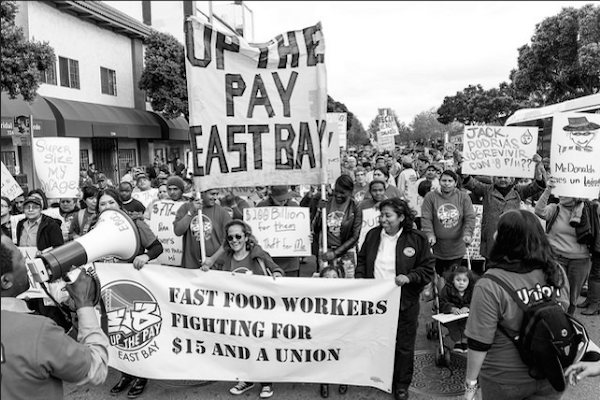New Titles From NLF Authors
Look at some of these great titles from New Labor Forum authors
The City Is the Factory: New Solidarities and Spatial Strategies in an Urban Age
Edited by Miriam Greenberg, Penny Lewis
The City Is the Factory examines the “relocation of the space of protest from the factory to the city . . . see[ing] in it a shift that is both historically distinct and politically significant. Across these city-oriented struggles, [the book’s essay’s] focus on the increasing prominence of what Henri Lefebvre called “right to the city” demands and frameworks that link work-related and “place-based” actions and identities to forge more sustained movements. Here workplace concerns, for example of port truckers, teachers, or fast food workers, are linked to the environmental health of local port communities, or keeping neighborhood schools open, or ending brutal policing in marginalized communities. So, too, . . . precarious workers, new immigrants, and the unemployed [use] the city as a lever of power, from gaining community support for day labor centers and rights for street vendors, to organizing in public squares when job conditions or surveillance means shop-floor organizing is not an option. Finally, urban social movements focused on what Manuel Castells termed “collective consumption” goods, like housing, education, child care, and public green space, find allies among labor organizations that aim to connect good jobs to broader social and environmental needs in the neighborhoods in which their members live.” Edited by New Labor Forum Consulting Editor Penny Lewis and Sociologist Miriam Greenberg, The City Is the Factory provides key insights into these issues.
Reclaiming Gotham: Bill de Blasio and the Movement to End America’s Tale of Two Cities
by Juan González, New Labor Forum
In November 2013, a little-known progressive stunned the elite of New York City by capturing the mayoralty by a landslide. Bill de Blasio’s promise to end the “Tale of Two Cities” had struck a chord among ordinary residents still struggling to recover from the Great Recession.
How did this happen? De Blasio’s victory, journalist legend Juan González argues, was not just a routine change of government but a popular rebellion against corporate-friendly policies that had dominated New York for decades. Reflecting that broader change, liberal Democrats Bill Peduto in Pittsburgh, Betsy Hodges in Minneapolis, and Eric Garcetti in Los Angeles also won mayoral elections that same year, as did insurgent Ras Baraka in Newark the following year. This new generation of municipal leaders offers valuable lessons for those seeking grassroots reform.
Refinery Town: Big Oil, Big Money, and the Remaking of an American City
by Steve Early, New Labor Forum
Home to one of the largest oil refineries in the state, Richmond, California, was once a typical company town bankrolled by Chevron. This largely nonwhite, working-class city of a hundred thousand had experienced the by-products of decades’ worth of poverty, substandard housing, and poorly funded public education. It had one of the highest homicide rates, per capita, in the country and a jobless rate often twice the national average.
But in 2012, when veteran labor reporter Steve Early moved from New England to Richmond, he witnessed a surprising transformation. In Refinery Town, Early chronicles the ten years of successful community organizing in Richmond that raised the minimum wage, defeated a casino development project, created a municipal ID to aid undocumented workers, challenged home foreclosures, and took on a big oil giant.
Part regional history, part call to action, Refinery Town is far more than the story of how one community defeated one company and remade itself into a revolutionary city. Richmond is merely a single example of how members of local government and empowered citizens can drive the nation forward, one city at a time.



